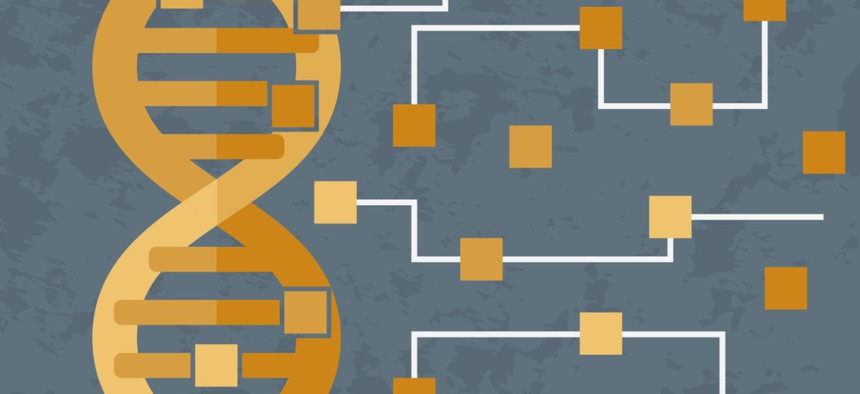Critical Update: Disrupting Gene Editing

Valentina Kruchinina/iStock
The CRISPR Cas 9 tool shook up the gene-editing space, leading to new possibilities, risks and questions about who and how the technology should be used.
Modern genetic engineering has been around since the 1970s, and scientists have been using the ability to move gene splices from one organism to another to try to gain efficiencies in agriculture as well as to treat diseases in humans. Then in the early 2010s, a new tool—CRISPR Cas 9—emerged and disrupted the space.
CRISPR stands for clustered regularly interspaced short palindromic repeats. It refers to sequences of amino acids found in the DNA of certain single-celled organisms and a related enzyme with ribonucleic acids, or RNA, that allows scientists to directly edit the genome.
In this episode of Critical Update, Nextgov spoke to scientists in the field to find out exactly what is possible with genetic engineering and got into some deep philosophical territory in exploring a debate about how a significant development in the technology should be used and by whom.
“I think this is a matter of scientists needing to police ourselves,” Peter Marks, director of the Food and Drug Administration’s Center for Biologics and Research, said. “This is a technology that one has to use responsibly.”
This development excited a community of biohackers eager to take advantage of the faster and cheaper way to modify genetic information. And the allure of being able to cure diseases, or more fundamentally challenge the bounds of nature, has driven them outside of institutional confines.
Biohacker Josiah Zayner told Nextgov broader use of CRISPR could expedite discoveries for its application. But in addition to unintentional harm risk-takers can bring to themselves, access to the technology also makes its use by malicious actors to harm others more unpredictable.
“People don't realize … how easy it is to use this technology, how readily available it is, like we think it’s so sci-fi and difficult and different, but it's really not. Like, the things you can do with it right now, it's crazy,” Zayner said. “And once people realize that, you know, holy cow.”
Listen below in your browser or download this episode from Apple Podcasts, Google Podcasts or your favorite podcast platform.
NEXT STORY: Critical Update: Let’s Talk About UFOs






